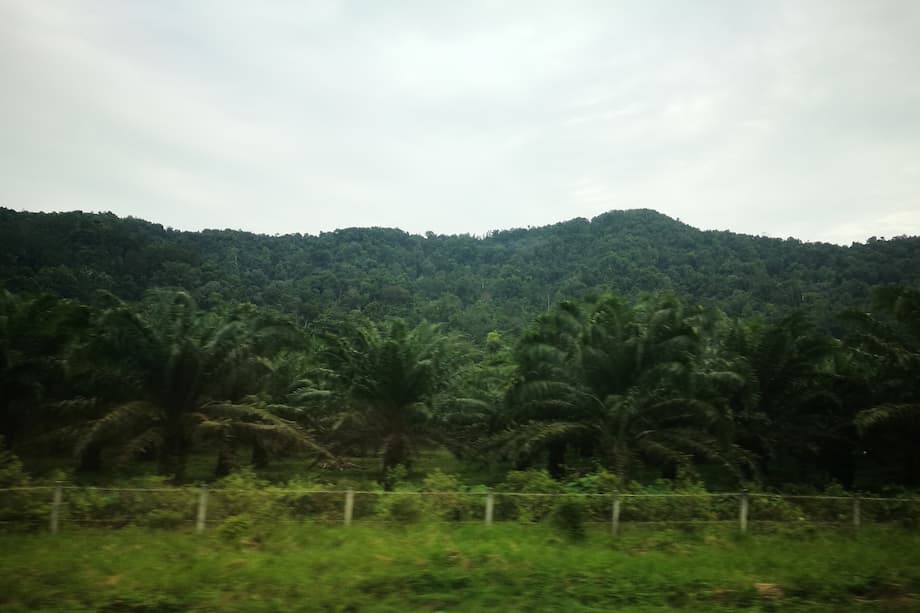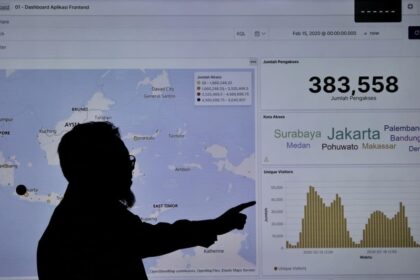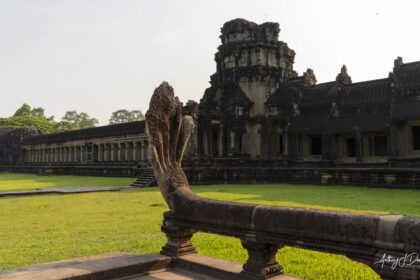A decisive move to police forests and extractives
Indonesia has expanded state control over parts of its natural resources sector by seizing more than 674,000 hectares of palm oil plantations and taking portions of two nickel mines into custody. Authorities say the palm estates were operating inside forest zones without the required permissions. The land will be managed by state owned agriculture company Agrinas Palma Nusantara, lifting its portfolio to 1.51 million hectares after a series of takeovers this year. On the mining side, officials moved against plots tied to one of the largest nickel operations in the world, reflecting a broader push to enforce permits and recover revenue across the supply chain.
- A decisive move to police forests and extractives
- What has been seized and who is affected
- Why plantations and mines need forest permits
- How the task force works and the role of the military
- Industry response and market impact
- Investment climate and governance debate
- Environmental and community concerns
- What it means for nickel, palm oil and global buyers
- What to watch next
- The Bottom Line
The stakes are high. Indonesia is the largest producer of nickel and the largest producer and exporter of palm oil. Illegal or poorly regulated operations have damaged forests and waterways and deprived the state of taxes and royalties that officials estimate at roughly 300 trillion rupiah each year. The new seizures are part of a wider campaign to curb abuses, standardize permits, and build a record of lawful supply that can support downstream industries and international partnerships.
President Prabowo Subianto has pledged to bring order to mining and plantations, increase mineral royalties, pursue corruption cases, and channel strategic assets into stronger public oversight. His agenda includes the creation of the sovereign wealth fund Danantara and a larger role for state managers in key projects. These moves have energized supporters who want cleaner governance and higher revenues, yet they have also sparked debate among investors who are watching for consistent rules and predictable enforcement, especially after a cabinet reshuffle that removed long serving finance minister Sri Mulyani Indrawati.
What has been seized and who is affected
The latest action centers on palm estates that officials say expanded into forest land without the proper permits. The government has identified a larger universe of suspect sites. Authorities have flagged millions of hectares for review, with more than a thousand suspected illegal mines and up to five million hectares of oil palm plantations under scrutiny for possible violations. The task force has intensified mapping and document checks to align operations with forest classifications and licensing rules.
Earlier this year, teams backed by security forces took control of more than three million hectares of oil palm estates judged to be in breach of forest rules. The new seizures build on that operation and shift the focus from emergency control to long term management, including efforts to recover profits that officials say were obtained without proper permissions and payments.
On the nickel front, the task force has confiscated limited plots at major operations. Land used by Weda Bay Nickel on Halmahera was among the areas seized, alongside a plot run by Tonia Mitra Sejahtera in Southeast Sulawesi. Officials say the affected area at Weda Bay is small relative to its roughly 45,000 hectare contract area, and the seized plot functioned as a quarry for construction materials rather than a core extraction site. That means mine output is unlikely to see an immediate hit, although permit reviews could still expand.
Nickel cases under the spotlight
Weda Bay Nickel is a joint venture anchored by Tsingshan Holding Group, with partners that include France based Eramet and Indonesia’s Aneka Tambang. The complex has become a cornerstone of Indonesia’s nickel processing ambitions. The seizure of a quarry site signals that even the largest operators are subject to the same forest rules that govern smaller players.
Eramet Indonesia said it is assessing the situation and stressed that the affected parcel is not central to production. The company underscored its intent to comply with regulations and sought to reassure stakeholders about the short term effect on operations.
“We do not expect a significant impact on operations.”
In a separate case, authorities seized an area operated by Tonia Mitra Sejahtera for allegedly running inside forest land without the required permits. Officials say reviews are continuing and could lead to additional actions if audits uncover more breaches.
Palm oil estates transferred to a new state manager
Most of the seized plantations are being transferred to Agrinas Palma Nusantara, a new state manager created to stabilize operations, verify boundaries, and bring estates into legal compliance. The company is expected to continue production while it audits documents, resolves land status, and channels profits to the state. With the latest move, Agrinas now manages 1.51 million hectares, a rapid scale up that reflects the size of the enforcement drive.
Why plantations and mines need forest permits
Much of Indonesia’s land is part of the forest estate, known locally as kawasan hutan. Any use of that land for non forestry purposes requires formal permission. For mines, the key instrument is a forest borrow to use permit, which sets the boundaries, time limits, fees, and reclamation obligations for activities within forest zones. Plantation companies generally need the government to release forest land for conversion before they can obtain the land use and business permits that allow planting and harvesting.
Overlaps in maps and uneven governance have long complicated this system. Some operators have pushed beyond licensed boundaries, opened quarries inside forest zones, or relied on partial documentation that did not include the specific forest approval. The current crackdown targets those gaps, using satellite mapping, on site inspections, and document checks to verify whether activities align with the law.
When a company lacks a valid forest permit, its activity is considered illegal. The state can take control of the site, direct operations to a public manager, and calculate monies owed. That usually includes unpaid taxes, royalties, compensation for using forest land, and funds for environmental rehabilitation after mining or plantation activities conclude.
How the task force works and the role of the military
Indonesia’s enforcement is led by a joint task force that brings together prosecutors, police, soldiers, and government officials. The teams secure sites, take administrative control, and then require companies to return a portion of profits rather than moving straight to criminal charges in every case. Mines taken over by the task force can be placed under the temporary stewardship of the State Owned Enterprises Ministry, while plantations are transferred to Agrinas for management.
Febrie Adriansyah, the assistant attorney general for special crimes and a senior figure in the task force, outlined the approach to enforcement on forest land.
“This enforcement action on forest areas converted into plantations or exploited by miners does not necessarily mean the immediate launch of a criminal prosecution.”
He said the state’s priority is to reclaim control, restore order and recover profits that should have been paid to the public purse. Authorities retain the option to open criminal investigations in cases that involve fraud, corruption, or serious environmental harm.
President Prabowo has made the crackdown a political priority. In recent remarks, he described the extent of illegal activity and pledged unflinching action, including with security assistance when resistance occurs at takeover sites.
“There is no reason the government would not take action for the sake of the people.”
“We will not hesitate in unravelling major corruption cases.”
Task force teams have reported pushback at some locations, which is why soldiers often accompany officials to prevent violence and protect workers on the ground. The practice has drawn support from those who want faster enforcement and criticism from rights advocates who fear an expanded military role in civilian affairs.
Industry response and market impact
Industry groups are reacting to the sweep with a mix of caution and concern. Eddy Martono, who heads the Indonesian Palm Oil Association, has questioned some of the numbers cited by the government and argued that several companies and cooperatives hold various land use concessions or ownership certificates. He urged closer consultation with producers to avoid tarring the entire sector with the same brush.
Mining firms are watching the permit audits closely. The parcels seized at Weda Bay Nickel and other sites are small in relation to their overall production footprint, so nickel output has not yet seen a clear impact. If auditors broaden their scope and identify larger permit gaps, costs and timelines for projects could shift.
Financial markets are weighing opportunity against risk. As the president spoke, the main stock index briefly hit an all time high before pulling back, and the rupiah slipped. Investors are balancing the chance of higher state revenue and fairer competition with the need for legal certainty and consistent rules that allow long term planning.
Investment climate and governance debate
The enforcement campaign coincides with a reordering of the state’s role in strategic sectors. Jakarta has moved to consolidate assets and channel investment through Danantara, while placing more operations under public managers. A cabinet shake up that replaced veteran finance minister Sri Mulyani Indrawati prompted questions about policy continuity and the guardrails that investors rely on when committing capital.
Supporters of the crackdown say it will remove illegal competition, bring companies into compliance, and improve fiscal returns without stifling legitimate business. They argue that clear permits, better maps and timely royalty payments will help credible operators and protect communities and forests.
Critics highlight longstanding structural challenges. Overlapping laws, complex permitting, uneven local governance, and entrenched corruption networks have hampered enforcement for years. Without transparent criteria for seizures, timely dispute resolution, and a clear path to legalization where appropriate, they warn the campaign could struggle to produce the environmental gains and steady fiscal flow that the government seeks.
Officials say the broader strategy is to expand downstream processing for nickel and copper, add value inside the country, and attract investment that rewards traceable and lawful supply. A credible cleanup, they argue, will make that possible.
Environmental and community concerns
Rights advocates and environmental groups caution that a heavy security footprint in forest governance can put Indigenous and local communities at risk. Many communities live in or near the forest estate and lack formal recognition of their land rights. Legalizing those claims requires complex processes that can take years, leaving residents vulnerable when enforcement sweeps begin.
Activists also note that rules do not always distinguish between corporate scale encroachment and subsistence activities by smallholders. Some corporate cases have lingered for years in the courts, while smaller actors face rapid sanctions. The high profile prosecution of palm oil tycoon Surya Darmadi, whose companies were accused of massive illegal conversion of forest to plantations, underscored public frustration with unequal accountability.
The Forestry Ministry has asked the military to help protect and rehabilitate forests. Critics fear this could revive a broader military role in civilian life that Indonesia worked to curtail after the end of authoritarian rule. They worry that evictions and land disputes could escalate, especially in places with a history of conflict such as Papua, unless the government combines enforcement with strong safeguards.
Environmental organizations point to evidence that Indigenous communities can be effective forest stewards when their rights are recognized. They have urged the government to pair seizures and audits with legal recognition of customary territories, fair and transparent dispute resolution, and community based monitoring that brings local people into compliance efforts.
What it means for nickel, palm oil and global buyers
Nickel is a pillar of electric vehicle batteries and stainless steel, and Indonesia’s output now sets the pace for global supply. More frequent permit checks and tighter controls inside forest zones could delay expansions or add costs to projects in Sulawesi and Halmahera. Companies will need to maintain precise boundary maps, secure the correct forest permissions, and budget for restoration obligations to avoid disruptions.
Policy shifts abroad add another layer. Recent tariffs in the United States have increased costs for many Indonesian goods, with limited relief for some processed nickel products depending on eligibility. Producers are trying to diversify buyers while deepening domestic supply chains that align with Jakarta’s downstream goals.
Palm oil is a staple in food, cosmetics, and biofuels, and Indonesia is the largest supplier. If long running illegal estates are shut or relocated to legal areas, supplies could tighten in the near term. Many producers face stricter expectations from buyers in Europe and Asia who demand proof that harvests do not come from recently deforested land. The crackdown could speed up investment in traceability, independent audits and satellite monitoring to meet these requirements.
For global buyers and traders, documentation will matter more. Clear proof of origin, up to date maps, evidence of forest permits and reclamation plans will shape purchasing decisions. The ability to show clean supply chains can preserve market access and pricing power as customers demand stronger environmental and legal assurances.
What to watch next
The next phase of enforcement targets mines operating inside forest zones without permits across about 4.27 million hectares, with operations set to ramp up in the coming period. Officials say businesses found in violation will be required to return a portion of their profits to the state. Seized mines will be managed temporarily by the State Owned Enterprises Ministry, a model already used for plantations transferred to Agrinas.
Key markers of progress will include how many permits are regularized, how much revenue is recovered, and whether the most serious violators face prosecution. Observers will also watch the extent of transparency in case selection and resolution, the safeguards applied to communities that lack formal land titles, and the timeline for environmental rehabilitation where damage has occurred.
For companies, the priority is to shore up compliance before auditors arrive. That means checking boundaries against official maps, updating forest permissions, consolidating land documents, and preparing to demonstrate lawful operations to the task force. For the state, the test is to enforce the rules while maintaining a credible, predictable investment climate that supports growth and jobs.
The Bottom Line
- Indonesia seized more than 674,000 hectares of illegal palm oil estates and parts of two nickel mines as part of a widening enforcement drive.
- Seized plantations are being managed by Agrinas Palma Nusantara, lifting its portfolio to 1.51 million hectares.
- Officials say illegal and poorly regulated activity costs the state around 300 trillion rupiah a year in lost revenue.
- Limited plots were confiscated at Weda Bay Nickel and at Tonia Mitra Sejahtera for operating in forest areas without permits.
- Authorities have identified more than 1,000 illegal mines and are reviewing millions of hectares of palm estates for violations.
- The task force prioritizes state control and recovery of profits, with criminal probes reserved for serious cases.
- Investors are weighing stronger enforcement against concerns over legal certainty and the expanded role of the military.
- Environmental groups warn of risks to Indigenous and local communities if safeguards are weak.
- Nickel and palm oil supply could face short term disruptions as permits are audited and operations are regularized.
- The government aims to pair enforcement with downstream industrial growth and higher, more reliable state revenues.












